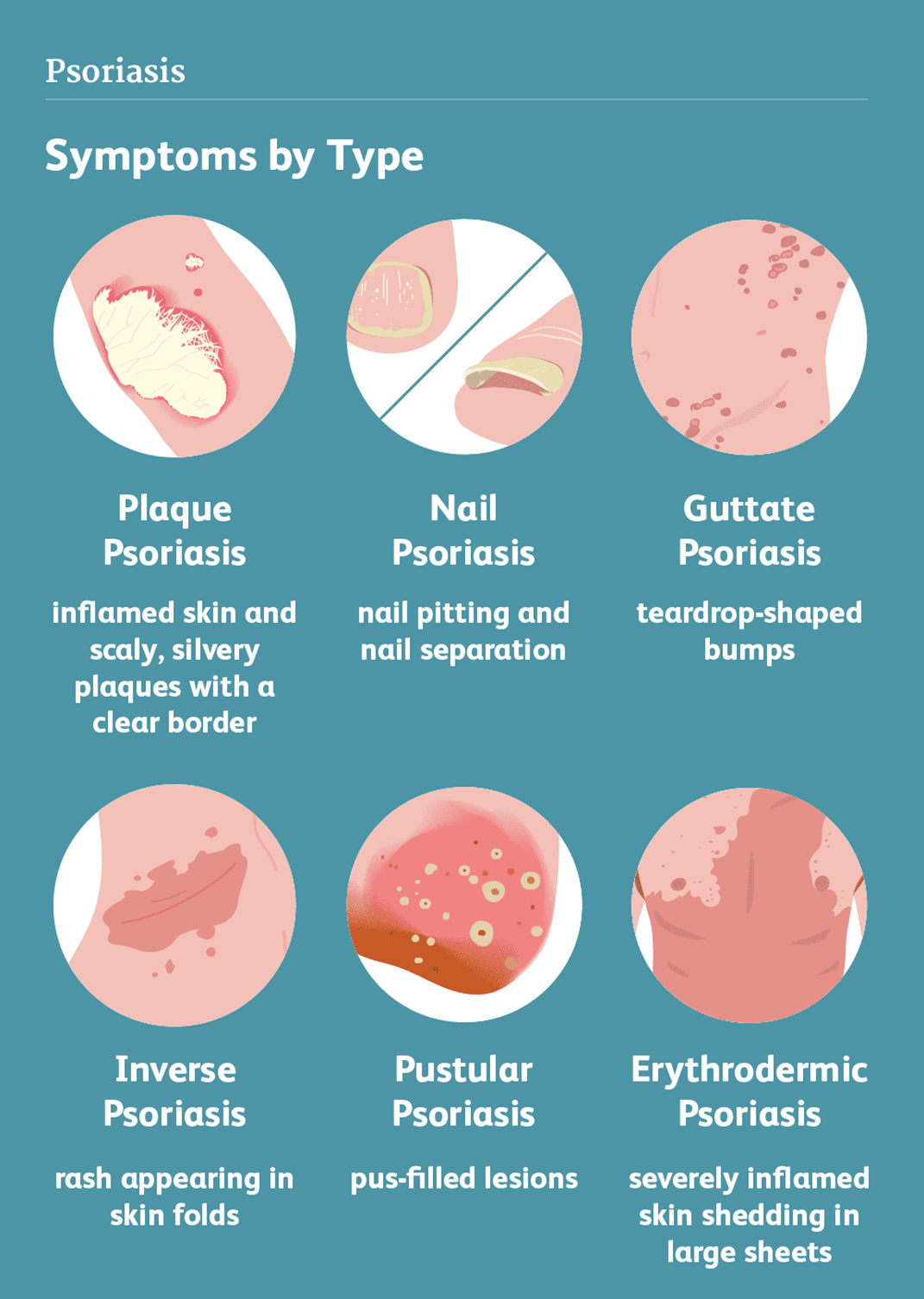During a skin inspection at the outpatient clinic, the nurse notices patches of thick, red skin with silvery scales on the client's elbows and knees. What skin abnormality does the nurse suspect?
Psoriasis
Rosacea
Scabies
Stasis dermatitis
The Correct Answer is A
Choice A reason: Psoriasis is a skin abnormality that causes patches of thick, red skin with silvery scales, usually on the elbows, knees, scalp, lower back, or genitals. Psoriasis is a chronic, inflammatory, autoimmune condition that affects the life cycle of skin cells, causing them to build up rapidly on the surface of the skin. Psoriasis can cause itching, burning, pain, or bleeding.

Choice B reason: Rosacea is a skin abnormality that causes redness, flushing, swelling, or pimples, usually on the face, especially the cheeks, nose, chin, or forehead. Rosacea is a chronic, inflammatory, vascular condition that affects the blood vessels and sebaceous glands of the skin. Rosacea can cause sensitivity, stinging, or dryness.
Choice C reason: Scabies is a skin abnormality that causes small, red bumps, blisters, or burrows, usually on the hands, wrists, feet, ankles, or genitals. Scabies is a contagious, parasitic infection that is caused by tiny mites that burrow into the skin and lay eggs. Scabies can cause intense itching, especially at night.
Choice D reason: Stasis dermatitis is a skin abnormality that causes swelling, redness, scaling, or ulcers, usually on the lower legs or ankles. Stasis dermatitis is a chronic, inflammatory condition that results from poor blood circulation in the veins of the legs, causing fluid to leak into the surrounding tissues. Stasis dermatitis can cause pain, itching, or infection.
Nursing Test Bank
Naxlex Comprehensive Predictor Exams
Related Questions
Correct Answer is A
Explanation
Choice A reason: Cleansing the skin around the pins is the action that the nurse takes first, because it is the most urgent and relevant action. Cleansing the skin around the pins is a procedure that involves removing any dirt, debris, or secretions from the pin sites, which can help prevent or treat infection, inflammation, or pain. Cleansing the skin around the pins is a priority intervention, as it can reduce the risk of complications, such as osteomyelitis, sepsis, or pin loosening.
Choice B reason: Collecting a culture of the purulent fluid is not the action that the nurse takes first, because it is not the most urgent and relevant action. Collecting a culture of the purulent fluid is a procedure that involves obtaining a sample of the pus from the pin sites and sending it to the laboratory for analysis, which can help identify the type and source of infection. Collecting a culture of the purulent fluid is an important intervention, but it should be done after cleansing the skin around the pins, and with a medical order and a sterile technique.
Choice C reason: Administering an antibiotic is not the action that the nurse takes first, because it is not the most urgent and relevant action. Administering an antibiotic is a procedure that involves giving the client an antimicrobial agent, which can help fight or prevent infection. Administering an antibiotic is an important intervention, but it should be done after cleansing the skin around the pins, and with a medical order and a proper route.
Choice D reason: Instructing the client to complete exercises of the affected extremity is not the action that the nurse takes first, because it is not the most urgent and relevant action. Instructing the client to complete exercises of the affected extremity is a procedure that involves teaching the client how to move and strengthen the muscles and joints of the limb in traction, which can help prevent or treat atrophy, contracture, or thrombosis. Instructing the client to complete exercises of the affected extremity is an important intervention, but it should be done after cleansing the skin around the pins, and with a medical order and a safe technique.
Correct Answer is D
Explanation
Choice A reason: Heberden's nodes are not a symptom of lupus. Heberden's nodes are bony swellings that form on the distal interphalangeal joints of the fingers. They are a sign of osteoarthritis, which is a degenerative joint disease that causes pain, stiffness, and reduced mobility.
Choice B reason: Chvostek's sign is not a symptom of lupus. Chvostek's sign is a facial twitch that occurs when the facial nerve is tapped near the ear. It is a sign of hypocalcemia, which is a low level of calcium in the blood. Hypocalcemia may be caused by various conditions, such as hypoparathyroidism, vitamin D deficiency, or renal failure.
Choice C reason: OsgoodSchlatter's disease is not a symptom of lupus. OsgoodSchlatter's disease is a condition that affects the growth plate of the tibia, which is the shin bone. It causes pain, swelling, and tenderness below the knee. It is common in adolescents who are active in sports that involve running, jumping, or bending the knee.
Choice D reason: Butterfly rash is a classic symptom of lupus. Butterfly rash is a malar rash that appears across the cheeks and the bridge of the nose. It is a common sign of systemic lupus erythematosus (SLE), which is an autoimmune disease that causes inflammation and damage to various organs and tissues. The rash may flare up or fade depending on the disease activity and exposure to sunlight.
Whether you are a student looking to ace your exams or a practicing nurse seeking to enhance your expertise , our nursing education contents will empower you with the confidence and competence to make a difference in the lives of patients and become a respected leader in the healthcare field.
Visit Naxlex, invest in your future and unlock endless possibilities with our unparalleled nursing education contents today
Report Wrong Answer on the Current Question
Do you disagree with the answer? If yes, what is your expected answer? Explain.
Kindly be descriptive with the issue you are facing.
